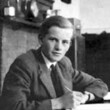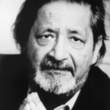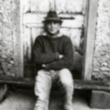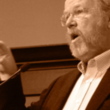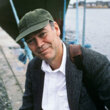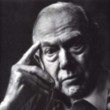The tao of travel: enlightenments from lives on the road
Description
Paul Theroux celebrates fifty years of wandering the globe by collecting the best writing on travel from the books that shaped him, as a reader and a traveler. Part philosophical guide, part miscellany, part reminiscence, The Tao of Travel enumerates “The Contents of Some Travelers’ Bags” and exposes “Writers Who Wrote about Places They Never Visited”; tracks extreme journeys in “Travel as an Ordeal” and highlights some of “Travelers’ Favorite Places.” Excerpts from the best of Theroux’s own work are interspersed with selections from travelers both familiar and unexpected: Vladimir Nabokov J.R.R. Tolkien Samuel Johnson Eudora WeltyEvelyn Waugh Isak Dinesen Charles Dickens James Baldwin Henry David Thoreau Pico Iyer Mark Twain Anton Chekhov Bruce Chatwin John McPheeFreya Stark Peter Matthiessen Graham Greene Ernest Hemingway The Tao of Travel is a unique tribute to the pleasures and pains of travel in its golden age.
More Details
9780547549194
Excerpt
Similar Titles From NoveList
Similar Authors From NoveList
Published Reviews
Booklist Review
As a travel writer, Theroux has few contemporary rivals and no peers. His many books have hammered home the axiom that in meaningful travel the destination is never as significant as the journey itself. Theroux's descriptive faculties and his deft, if often pitiless, eye for the insincere and the dishonest in the array of characters he encounters on his worldwide voyages leave readers indelibly haunted. Theroux's admirers will welcome this anthology of those travel accounts that he himself has found admirable or influential or enlightening for his own literary achievements. A fecund resource for anyone who might wish to follow in Theroux's footsteps, this is a remarkably perceptive and incisive annotated bibliography of travel books. Having surveyed this array of literature and having pursued the peripatetic existence, Theroux arrives at a destination: 10 brief commandments that serve as a vade mecum for travel and for life itself.--Knoblauch, Mark Copyright 2010 Booklist
Publisher's Weekly Review
Travel maestro Theroux (The Great Railway Bazaar) conducts a rambling tour of the genre in this diverting meditation on passages from his own and other writers' works. Several chapters spotlight underappreciated travel writers from Samuel Johnson to Paul Bowles, while others explore themes both profound and whimsical. There are classic set-piece literary evocations, including Thoreau on the hush of the Maine woods and Henry James on the miserable pleasures of Venice. A section on storied but disappointing destinations fingers Tahiti as "a mildewed island of surly colonials"; travel epics-shipwrecks, Sahara crossings, Jon Krakauer's duel with Mount Everest-are celebrated; exotic meals are recalled (beetles, monkey eyes, and human flesh, anyone?); and some writers, like Emily Dickinson, just stay home and write about that. The weakest section is a compendium of aphoristic abstractions-"Travel is a vanishing act, a solitary trip down a pinched line of geography to oblivion"-while the strongest pieces descry a tangible place through a discerning eye and pungent sensibility: "I do not think I shall ever forget the sight of [Mt.] Etna at sunset," Evelyn Waugh rhapsodizes; "[n]othing I have seen in Art or Nature was quite so revolting." Photos. (May 26) (c) Copyright PWxyz, LLC. All rights reserved.
Library Journal Review
Theroux (Ghost Train to the Eastern Star: On the Tracks of the Great Railway Bazaar) is considered the doyen of travel writers. Despite a promising concept, his latest book is not his best. Theroux takes excerpts of great travel writing (from the likes of Samuel Johnson, Evelyn Waugh, Henry David Thoreau, Mark Twain, Graham Greene, and Ernest Hemingway) and sprinkles them in 27 thematic chapters-e.g., "Fears, Neuroses, and Other Conditions," "Travel as an Ordeal," "Travelers' Bliss," and "Classics of a Sense of Place"-which, unsurprisingly, have little to do with Taoism. The first chapter, which is made up of snippets from Theroux's many books, is tedious and forgettable. It is only when the chapters include longer texts from other writers that one gets a better feel for the travelers and their situations. VERDICT True Theroux fans will be happy to add this title to their collections. Others may enjoy excerpts and perhaps be inspired to read the original works, but this is not a book for the casual reader of travel writing. [See Prepub Alert, 11/15/10.]-Lee Arnold, Historical Soc. of Pennsylvania, Philadelphia (c) Copyright 2011. Library Journals LLC, a wholly owned subsidiary of Media Source, Inc. No redistribution permitted.
Kirkus Book Review
From prolific travel writer and novelist Theroux (A Dead Hand, 2011, etc.), an eclectic compendium of travel-related trivia, quotes, quips and advice.Travel is a metaphor for living; the line between the travels and the traveler is fine; in the words of the Buddha, "You cannot travel the path before you have become the path itself." These ideas, the author explains in the preface to this curious anthology, comprise the essential philosophy behind this determinedly personal collection of travel appreciation. In a series of short chapters, Theroux looks at life on the road from perspectives that range from the predictable to the delightfully quirky. The author includes quotes from writers he admires, including Henry Fielding, Samuel Johnson, Evelyn Waugh and Robert Louis Stevenson. British men are particularly well-represented. Sections on "Travel in Brief" and "The Pleasures of Railways" quote substantially from Theroux's own work, and the final chapter, "The Essential Tao of Travel," a list of ten pieces of travel advice to live by, is surprisingly unimaginative, with suggestions like "Travel light" and "Keep a journal." Interspersed among this routine anthologizing, however, is a series of whimsical chapters that are often wonderfully playfulmany readers may wish that Theroux had scrapped some of the quotations and included more of these sections. Equally engaging are the author's brief rumination on disgusting meals and how they tasted and his quick peek into the lives of the spouses, friends and lovers who went along for the ride as largely invisible sidekicks on some of history's great travel adventures.Alternatively pious and irreverent, this is an uneasy almanac of favorite quotes and advice for the would-be tourist that broadly features travel as a trope for personal enlightenment.]] Copyright Kirkus Reviews, used with permission.
Booklist Reviews
As a travel writer, Theroux has few contemporary rivals and no peers. His many books have hammered home the axiom that in meaningful travel the destination is never as significant as the journey itself. Theroux's descriptive faculties and his deft, if often pitiless, eye for the insincere and the dishonest in the array of characters he encounters on his worldwide voyages leave readers indelibly haunted. Theroux's admirers will welcome this anthology of those travel accounts that he himself has found admirable or influential or enlightening for his own literary achievements. A fecund resource for anyone who might wish to follow in Theroux's footsteps, this is a remarkably perceptive and incisive annotated bibliography of travel books. Having surveyed this array of literature and having pursued the peripatetic existence, Theroux arrives at a destination: 10 brief commandments that serve as a vade mecum for travel and for life itself. Copyright 2011 Booklist Reviews.
Library Journal Reviews
Theroux (Ghost Train to the Eastern Star: On the Tracks of the Great Railway Bazaar) is considered the doyen of travel writers. Despite a promising concept, his latest book is not his best. Theroux takes excerpts of great travel writing (from the likes of Samuel Johnson, Evelyn Waugh, Henry David Thoreau, Mark Twain, Graham Greene, and Ernest Hemingway) and sprinkles them in 27 thematic chapters—e.g., "Fears, Neuroses, and Other Conditions," "Travel as an Ordeal," "Travelers' Bliss," and "Classics of a Sense of Place"—which, unsurprisingly, have little to do with Taoism. The first chapter, which is made up of snippets from Theroux's many books, is tedious and forgettable. It is only when the chapters include longer texts from other writers that one gets a better feel for the travelers and their situations. VERDICT True Theroux fans will be happy to add this title to their collections. Others may enjoy excerpts and perhaps be inspired to read the original works, but this is not a book for the casual reader of travel writing. [See Prepub Alert, 11/15/10.]—Lee Arnold, Historical Soc. of Pennsylvania, Philadelphia
[Page 91]. (c) Copyright 2010. Library Journals LLC, a wholly owned subsidiary of Media Source, Inc. No redistribution permitted.Publishers Weekly Reviews
Travel maestro Theroux (The Great Railway Bazaar) conducts a rambling tour of the genre in this diverting meditation on passages from his own and other writers' works. Several chapters spotlight underappreciated travel writers from Samuel Johnson to Paul Bowles, while others explore themes both profound and whimsical. There are classic set-piece literary evocations, including Thoreau on the hush of the Maine woods and Henry James on the miserable pleasures of Venice. A section on storied but disappointing destinations fingers Tahiti as "a mildewed island of surly colonials"; travel epics—shipwrecks, Sahara crossings, Jon Krakauer's duel with Mount Everest—are celebrated; exotic meals are recalled (beetles, monkey eyes, and human flesh, anyone?); and some writers, like Emily Dickinson, just stay home and write about that. The weakest section is a compendium of aphoristic abstractions—"Travel is a vanishing act, a solitary trip down a pinched line of geography to oblivion"—while the strongest pieces descry a tangible place through a discerning eye and pungent sensibility: "I do not think I shall ever forget the sight of Etna at sunset," Evelyn Waugh rhapsodizes; "othing I have seen in Art or Nature was quite so revolting." Photos. (May 26)
[Page ]. Copyright 2010 PWxyz LLC

























